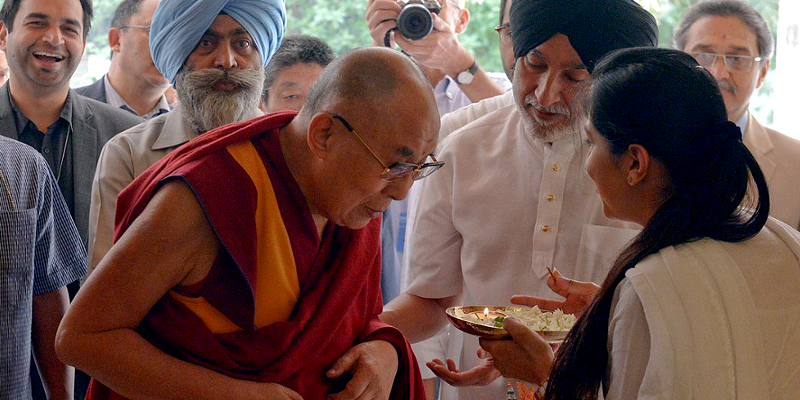The Tibetan spiritual leader His Holiness the Dalai Lama while speaking to an interview on a news channel mentioned of two reasons that ascertains why he feels at home in India. His Holiness also spoke about his role in the stand of the Tibetan struggle while describing about the Tibetan’s demand of a genuine autonomy and not separation.
“I certainly feel at home in India for two reasons. Firstly, since the 8th century, Tibet has followed Nalanda traditions. So from a very young age, I started studying certain texts from Nalanda University… Secondly, for 70 years, my body has survived on Indian dal, rice and chapatti. Sometimes, I describe myself as a son of India,” His Holiness the Dalai Lama said to senior journalist Vir Sanghvi on CNN-News18’s show Virtuosity while describing himself as a ‘son of India’.
The Tibetan spiritual leader who had to take the complete political responsibility of Tibet since early teenage years terminated the autocratic political system in a stages of reforms after setting up the exile Tibetan administration in India. While His Holiness retired from all political roles in 2011, the Tibetan administration or Tibetan government in Exile is a unique successful democratic system today.
“As soon as I reached India, I took the responsibility to set up a Reform Committee to change some of our systems and practices which failed to succeed as the Chinese government wanted reforms in their own way. Even spirituality should have democratic representatives…. People should focus on studying in order to preserve the Tibetan spirituality and not on the institution of the Dalai Lama. I feel the Dalai Lama is not relevant anymore.” His Holiness explained.
His Holiness also explained that the Tibetan movement is not about seeking separation from China rather it is about seeking a genuine autonomy within the framework of China that would entail basic human rights to the Tibetans. However, despite more than 10 rounds of dialogues between Tibetan representatives and Chinese government, there has been no progress with no formal contacts between the two since 2010.
“Every Chinese knows that we are not seeking separation… we are simply seeking the right which is mentioned in Chinese constitution… regarding preservation of our culture, including Tibetan language.” His Holiness added, “In 2001 or 2002, there was a revival or direct contact under the leadership of (then President) Ziang Zemin. There was a meeting with Chinese officials in 2010 that was the last time. Since then, there has been no direct contact.”







Leave a Reply